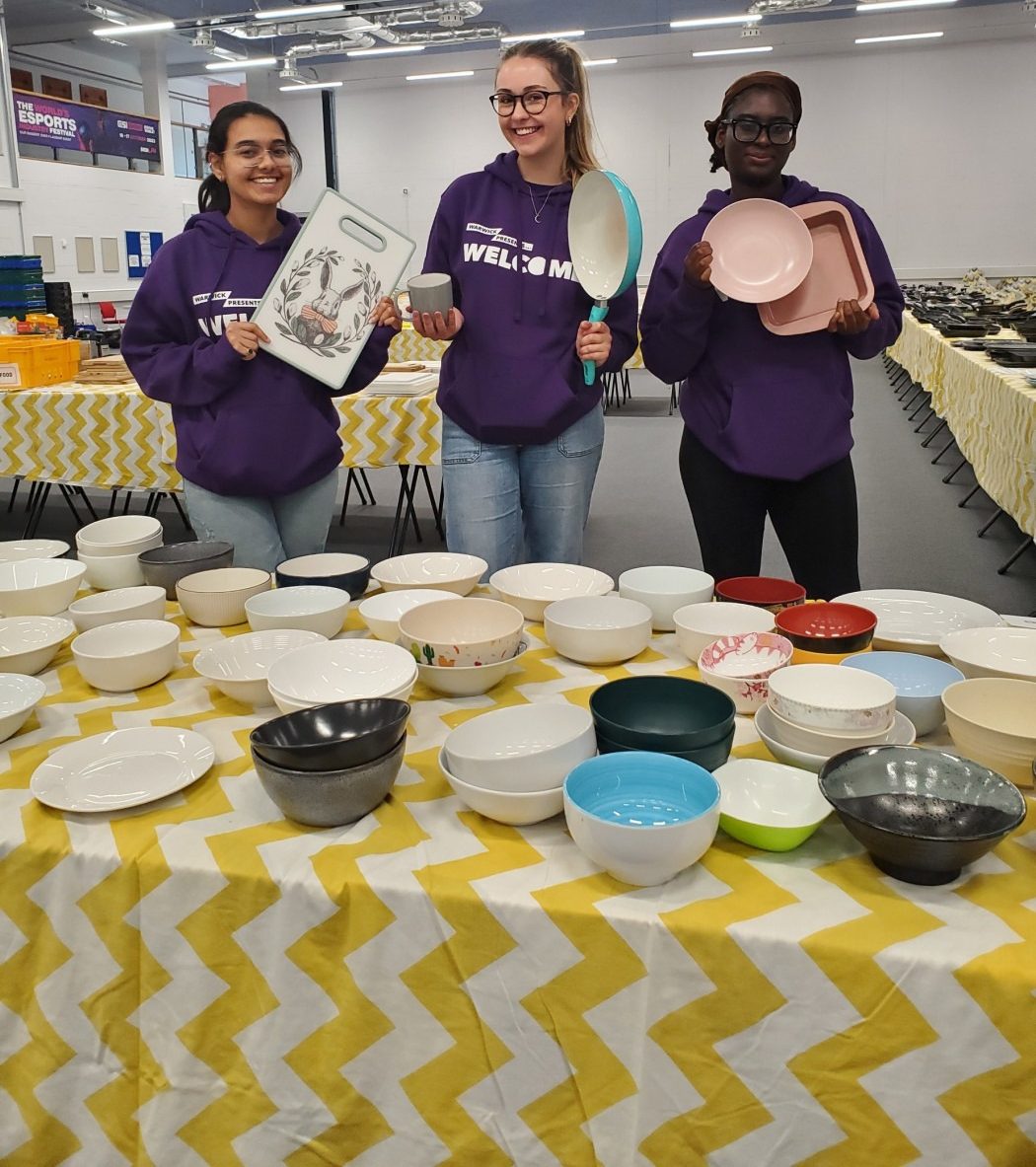Warwick ‘Kitchen Kit Market’ sale raises nearly £6,000 for charity
Proceeds from the University of Warwick’s Kitchen Kit Market have raised nearly £6,000 for local refugee charities, it has been announced.
The market, run by the University’s Energy and Sustainability Team during Welcome Week, sold “pre-loved” kitchen items to students furnishing their new accommodations, making £5,900.
The charity event welcomed over 1,000 students and sold two tonnes of kitchen items. Items were sold on a ‘pay as you feel basis’, allowing some students to obtain full kitchen sets for as little as £1.
This not only helped Carriers of Hope, a Coventry-based refugee charity which all sales went towards, but also helped those struggling with the rising cost-of-living.
Altogether, this strategy allowed students to save an estimated £80 each on kitchen utilities.
The recycling of products [is thought] to have avoided approximately 14.7 kg of carbon emissions — the equivalent of driving 86 kilometres by car
Along with the financial and social benefits, the event also carried many environmental upsides, with the recycling of products thought to have avoided approximately 14.7kg of carbon emissions – the equivalent of driving 86 kilometres by car.
The Kitchen Kit Market is part of a wider sustainability drive by the University, with the annual Donation Drive at the end of last year having already saved 8.16 tonnes of materials from going to general waste.
This event collected food, kitchenware, homeware, and small electrical items from students leaving university accommodation, avoiding an estimated 15,524kg of carbon emissions. Collected items were distributed to local charities, with some items making up the stock of the Kitchen Kit Market.
Steffi Price, Director of Operations and Partnerships at Carriers of Hope, stated that: “Not only do we save tonnes of waste from landfill, but the items collected and money raised go to providing a positive start for our clients as they settle into their new lives in Coventry.”
The Kitchen Kit Market project is an example of a circular economy, explained by Hayley Lambert, Warwick’s Circular Economy Sustainability Champion, as: “prolonging the life of material goods through better design, but also through reuse and repair”.
Lambert continued that not only is the initiative beneficial for charity, but it also “reduces carbon, […] enables our students to consume more responsibly, and supports them with the cost of living.”

Comments (1)
Excellent article!